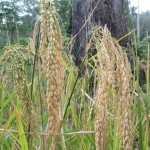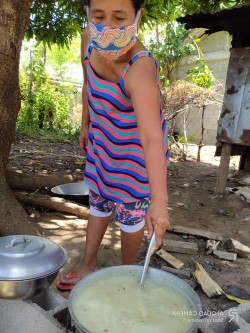Rise for Rice: Solidagro partners join World Localization Day
Jul 26, 2021
Solidagro Philippine partners, together with Agroecology Exchange (Agroecology X), a network of organizations advocating for agroecology, participated in the World Localization Day. The event is a celebration of the emerging worldwide localization movement which aims to restore community fabric and human-scale, ecological economies, with a central focus on local food systems.
The localization movement challenges economic globalization and the corporate control of our food that has transformed the food system into a giant industry that destroys the natural world and local economies. It is also a call for the world to move from destructive industrial monocultures to diversified, local, community-driven systems.

In response to the localization movement’s call, Agroeocology X hosted an online local food feast celebrating rice, the Philippines ' staple food, as farmers and organizations in various parts of the country showcased cooked rice in different varieties, colors, textures, and flavors.





Guest speakers also shared their rice farming stories as they reminisced about a time in the past when a variety of different species of birds, fish, insects, and other plants lived symbiotically in their rice paddies, and when farmers worried less about where to get the food to eat with rice because they could get them close at hand. Farmers then employed agroecological practices, such as crop rotation, crop, and livestock integration, and leaving fields fallow for some time for the soil to recover its nutrients.
The Green Revolution in the late 1960s, however, disrupted the farmer’s harmonious relationship with the land as it destroyed the traditional system of rice planting, and traditional rice varieties were replaced by high-yielding monohybrid varieties that were dependent on chemical fertilizers and pesticides. These eroded the soil and polluted the water that, in turn, became uninhabitable to animals, fish, insects, and other plants that were once thriving there. Unable to withstand the increasing expenses for farming, many small farmers began to sell their lands and look for other occupations, while those who remained were caught in the vicious cycle of debt. The local food system, which was based on building social connections, knowledge sharing, and strengthening environmental stewardship of food producers and consumers, was undermined to make way for a globalized, industrial, and corporate-controlled food system.
“Due to profit-driven advances of agrochemical transnational corporations and their collaborators, local food systems which include local knowledge, agrobiodiversity, collective spirit, and ecological economies managed by farming communities and indigenous peoples are disrupted and destroyed by the introduced destructive practices that often favor large scale mono-cropping and capital intensive chemical farming coupled with neoliberal policies to maximize gains,” said Agroecology X member organization, Masipag, in a statement.
 MASIPAG is advocating for the strengthening of the local food system and agroecology by adopting diversified integrated farming systems to provide safe, healthy, and culturally appropriate food to their communities and at the same time preserve the rich biological resources that are abundant in nature favoring a balanced diet, addresses the needs of the local community and respects local knowledge and traditions of the food producers.
MASIPAG is advocating for the strengthening of the local food system and agroecology by adopting diversified integrated farming systems to provide safe, healthy, and culturally appropriate food to their communities and at the same time preserve the rich biological resources that are abundant in nature favoring a balanced diet, addresses the needs of the local community and respects local knowledge and traditions of the food producers.
To cap the events, participating organizations reiterated their call that to achieve food systems that are safe, healthy, sustainable, and just and that efforts should be made to deglobalize and relocalize food systems to empower small farmers, address the needs of the people and take care of the planet.






